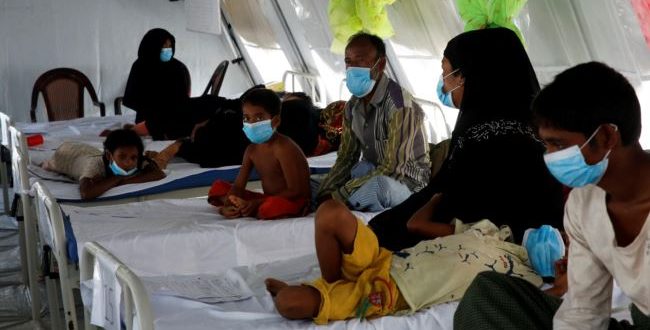Newborns in danger of malnutrition and disease as huge influx of refugees from Myanmar puts pressure on basic services in Cox’s Bazar shelters
More than 48,000 babies will be born this year in the cramped and squalid refugee camps where the Rohingya Muslims of Myanmar are living.
According to Save the Children, about 130 live births are expected each day across 2018, with newborns facing malnutrition and the risk of diseases such as diphtheria, cholera and measles.
The warning follows a report by the World Health Organization (WHO) that says basic services in Cox’s Bazar, Bangladesh, where Rohingya refugees are living, are under severe strain.
More than 655,000 Rohingya refugees fled to Bangladesh from Myanmar following the outbreak of violence in Rakhine state in August. They joined 200,000 other refugees who had already crossed the border. Many of the people who fled to the area are traumatised, and some arrived with injuries caused by gunshots, shrapnel, fire and landmines.
The overcrowding in Cox’s Bazar – which has one of the densest refugee populations in the world – means there is little space for aid workers to open facilities such as health centres. Poor sanitation means there is also a heightened risk of disease.
Daphnée Cook, communications manager for Save the Children’s Rohingya response, said: “Because the movement of people into the area happened so quickly, people just built up houses everywhere. What that means is a lot of houses are really far away from toilets, which creates huge issues with open defecation, drainage, and huge queues for toilets.
You see open sewers everywhere, open-water drains with insect larvae in them; there’s a lot of boreholes around which obviously [do not contain] drinking water.”
Newborns are especially vulnerable to disease, she added. “Their bodies aren’t able to cope with even the most simple infections, so there’s a real risk, if babies get any kind of water-borne disease or diarrhoea, they can suffer from malnutrition,” said Cook.
A quarter of children under five in Cox’s Bazar are suffering from malnutrition. Only 22% of births in the area take place in health facilities, according to the WHO, with most babies delivered in flimsy tents made of plastic and bamboo. When complications occur, mothers are unable to access expert care.
Two thirds of pregnant women have no access to gynaecological and obstetrical services, while many women are unable to breastfeed due to poor nutrition, or because there is no private space to do so.
“The disadvantage these newborn Rohingya babies will face, by virtue of the situation they are born into, is truly heartbreaking,” said Rachael Cummings, health adviser in Cox’s Bazar for Save the Children. “From the very beginning they will battle odds stacked against them, living in an overcrowded environment where everyone is desperate for help.
“The needs are simply enormous and we don’t have enough resources and funding to ensure every mother and child receives the medical care they require.”
The Guardian
 Lebanese Ministry of Information
Lebanese Ministry of Information



